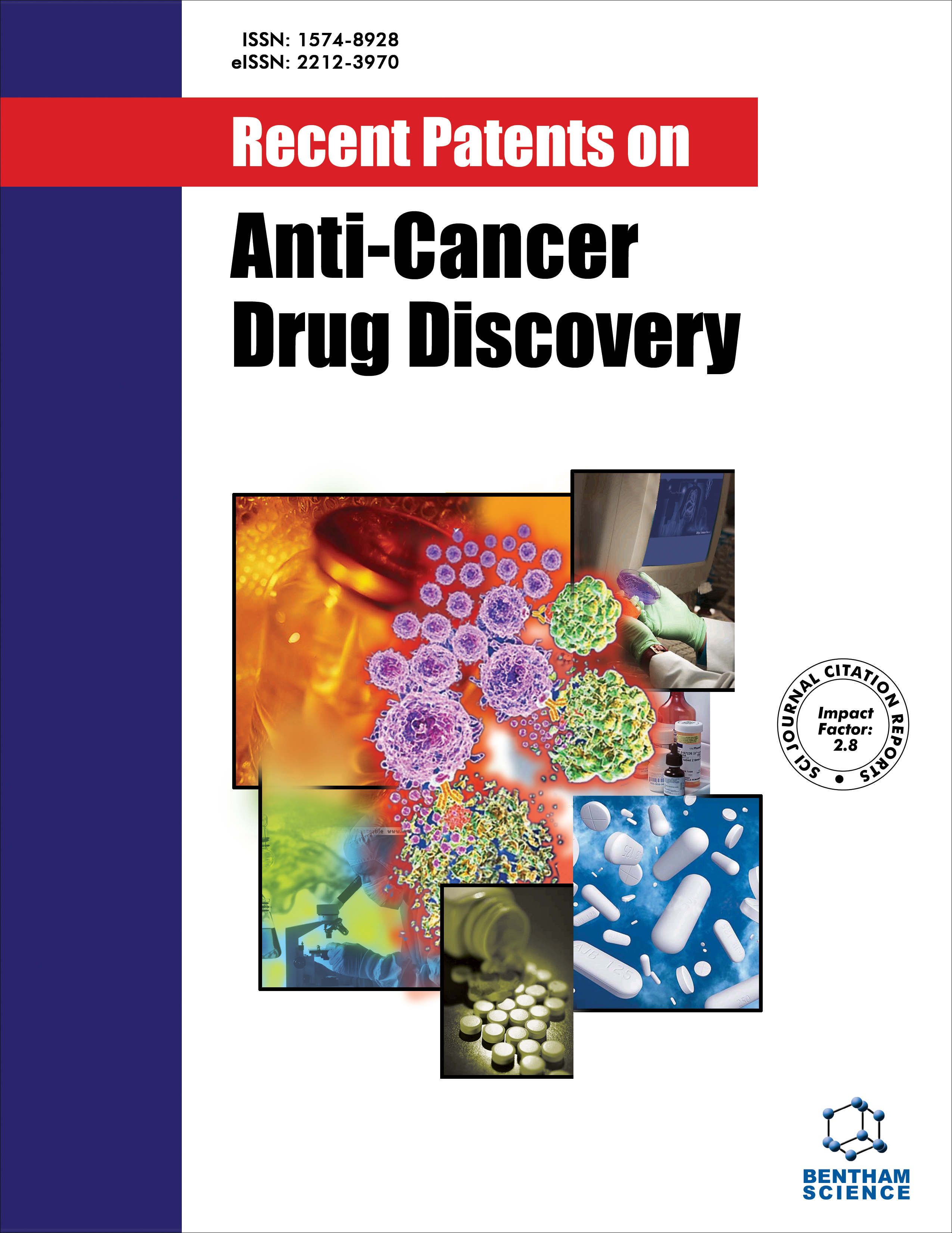-
s Anti-Cancer Drugs Targeting Fatty Acid Synthase (FAS)
- Source: Recent Patents on Anti-Cancer Drug Discovery, Volume 7, Issue 2, May 2012, p. 185 - 197
-
- 01 May 2012
Abstract
Fatty acid synthase (FAS) is a key enzyme of the fatty acid biosynthetic pathway which catalyzes de novo lipid synthesis. FAS expression in normal adult tissues is generally very low or undetectable as majority of fatty acids obtained are from dietary sources, whereas it is significantly upregulated in cancer cells despite adequate nutritional lipid supply. Activation of FAS provides rapidly proliferating tumor cells sufficient amount of lipids for membrane biogenesis and confers growth and survival advantage possibly acting as a metabolic oncogene. Importantly, inhibition of FAS in cancer cells using the pharmacological FAS inhibitors results in tumor cell death by apoptosis whereas normal cells are resistant. Due to this differential expression of FAS, the inhibitors of this enzyme are selectively toxic to tumor cells and therefore FAS is considered an attractive therapeutic target for cancer. Several FAS inhibitors are already patented and commercially available; however, the potential toxicity of these FAS inhibitors remains to be tested in clinical trials. In this review, we discuss some of the potent FAS inhibitors along with their patent information, the mechanism of anti-cancer effects and the development of more specific and potent FAS inhibitors with lower side effects that are expected to emerge as anti-cancer treatment in the near future.


